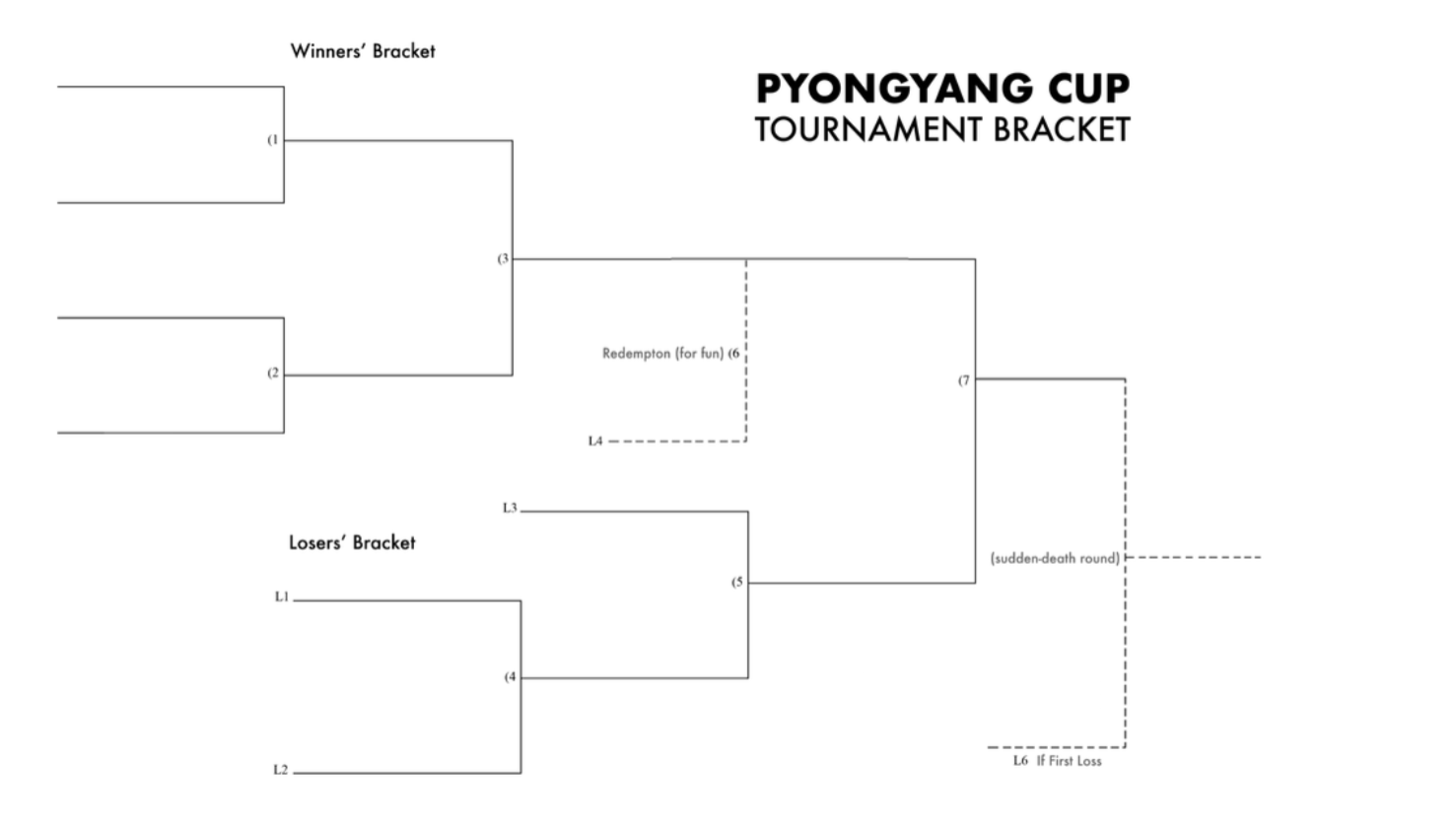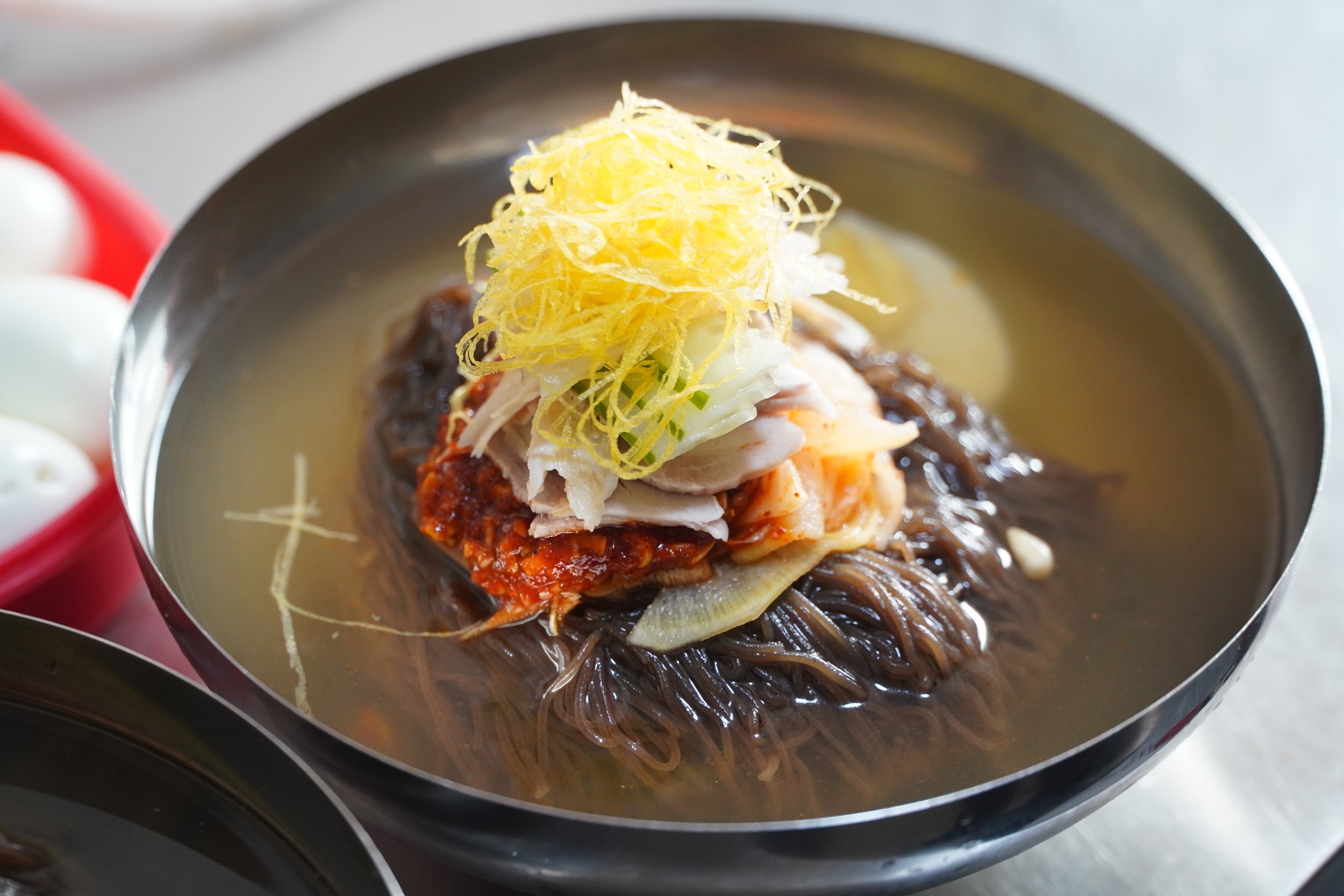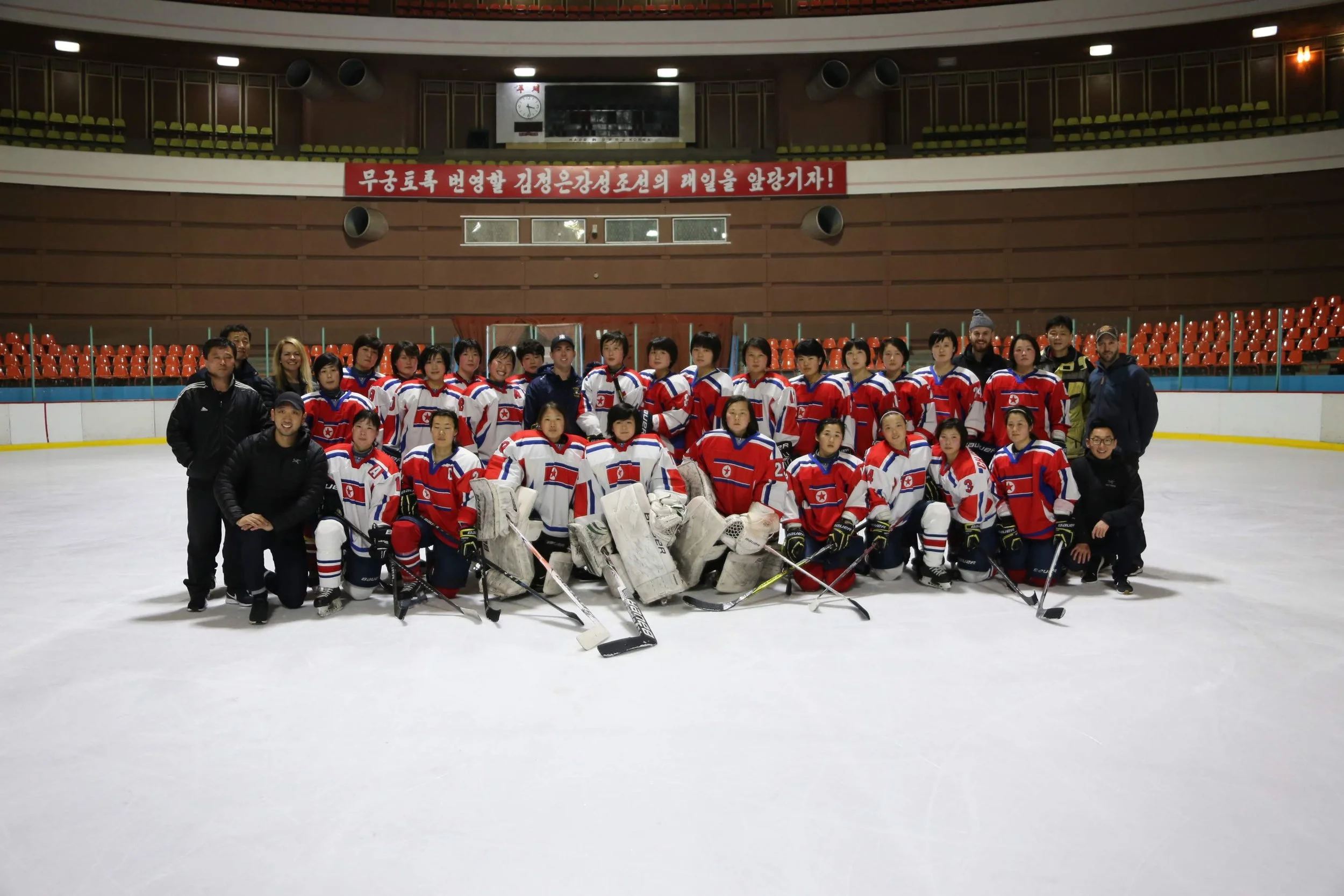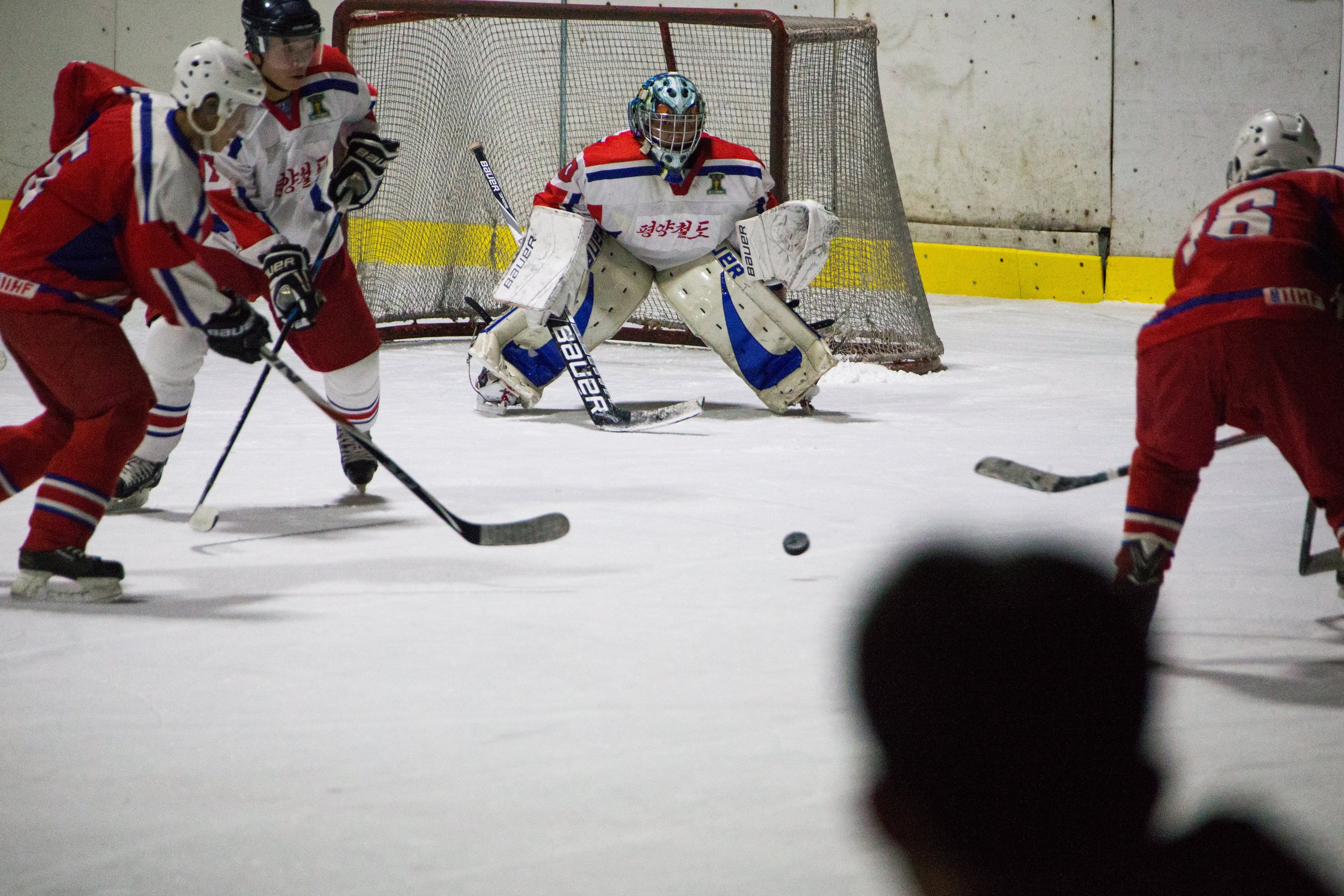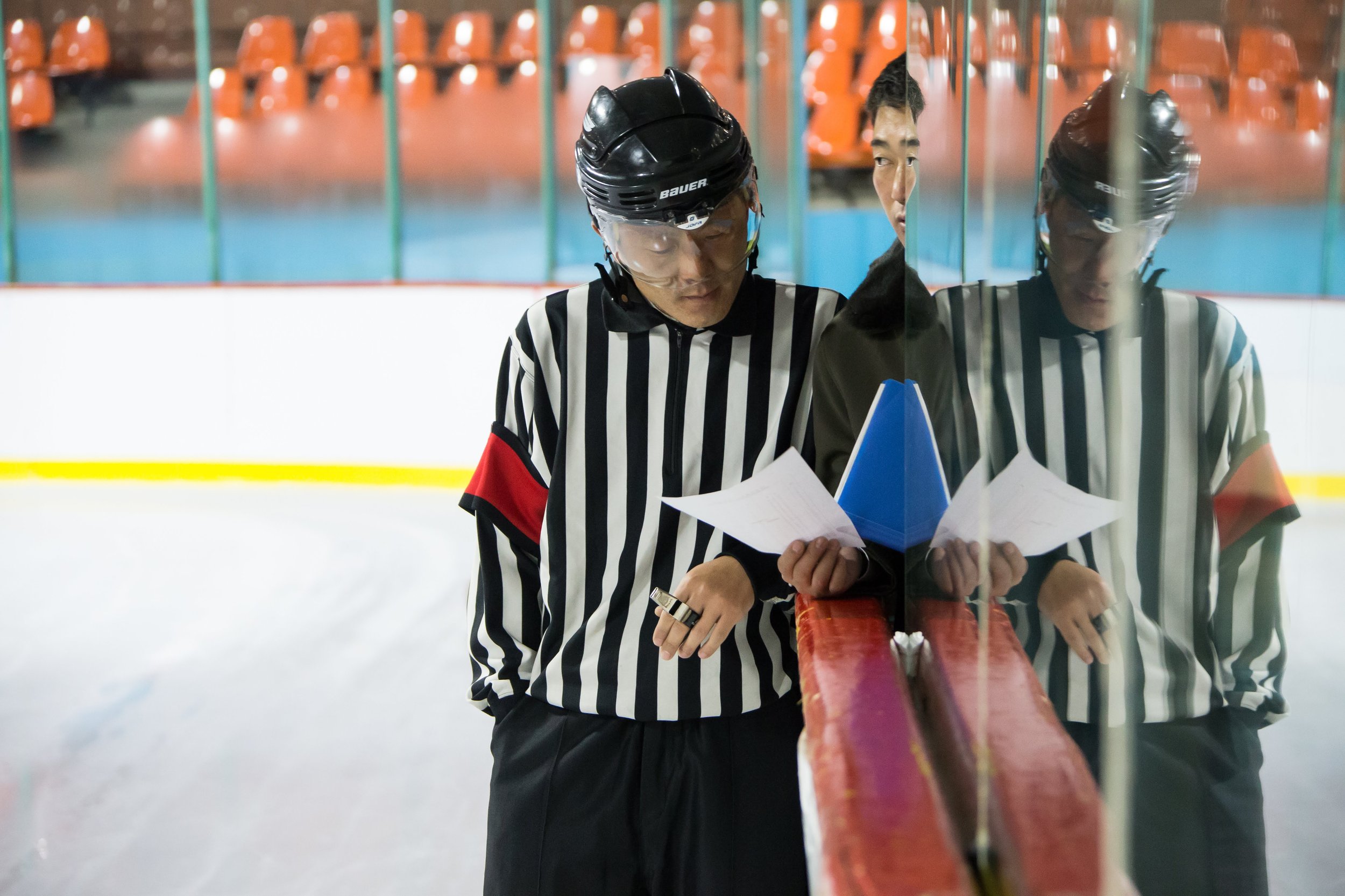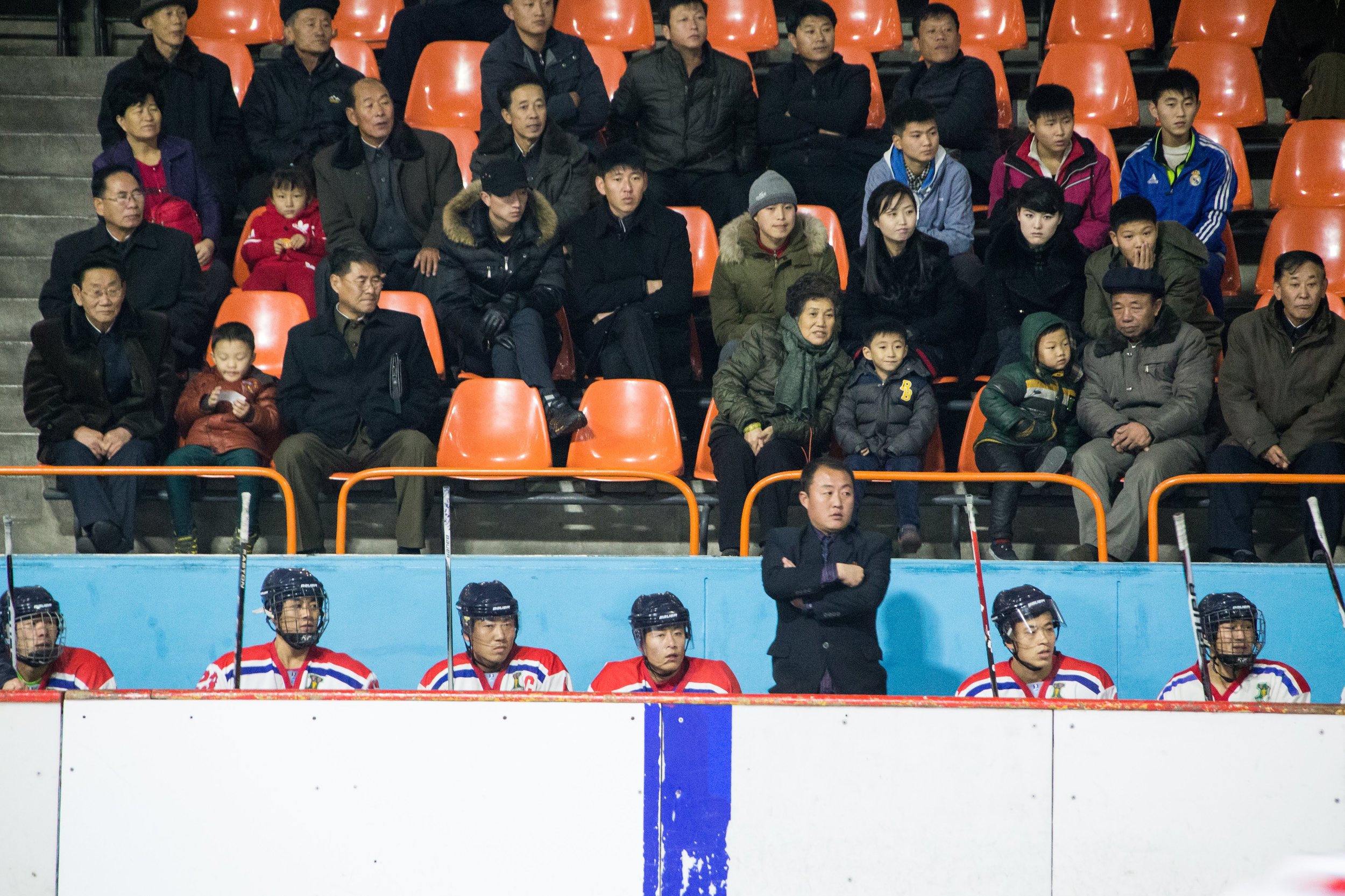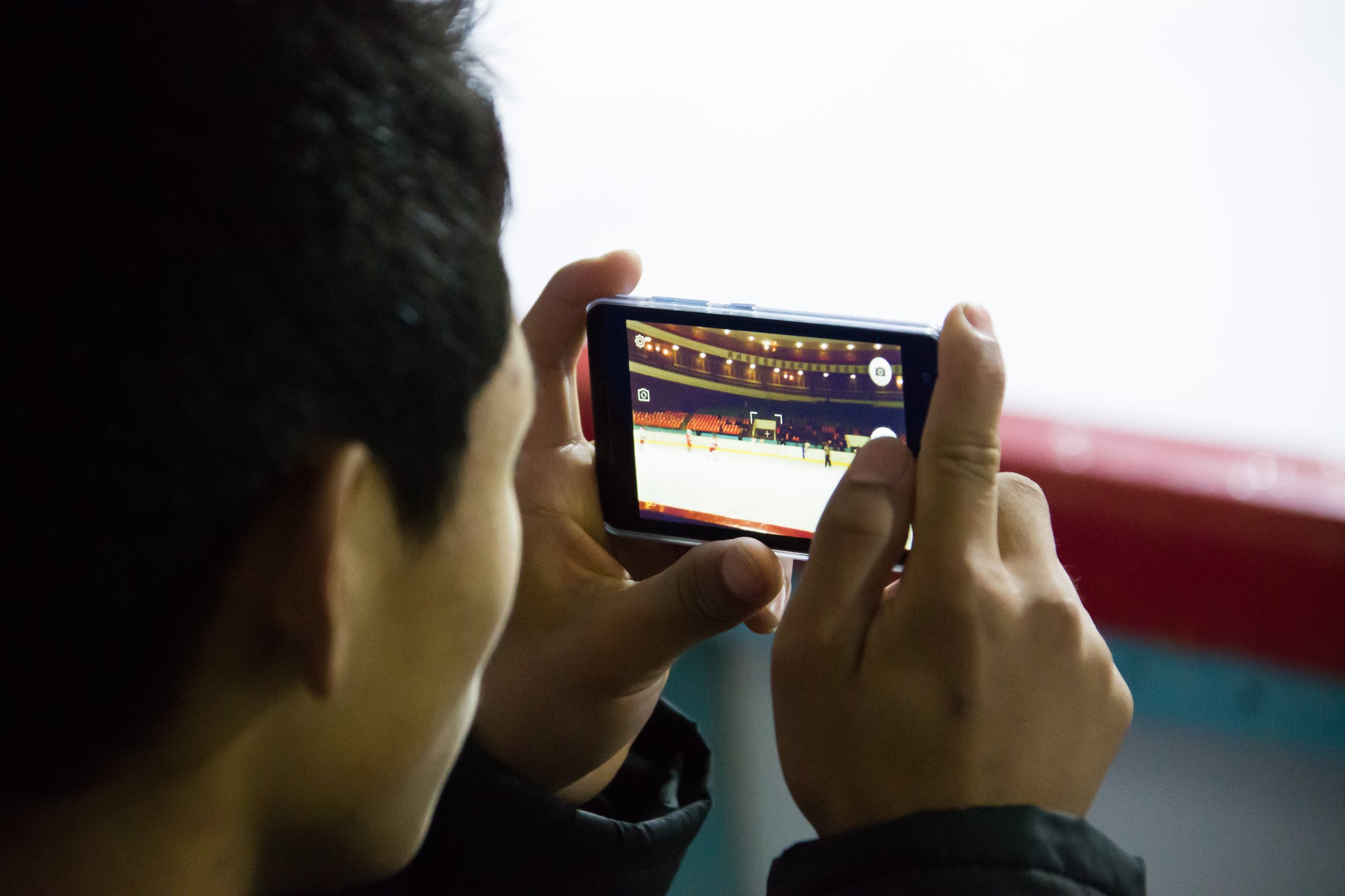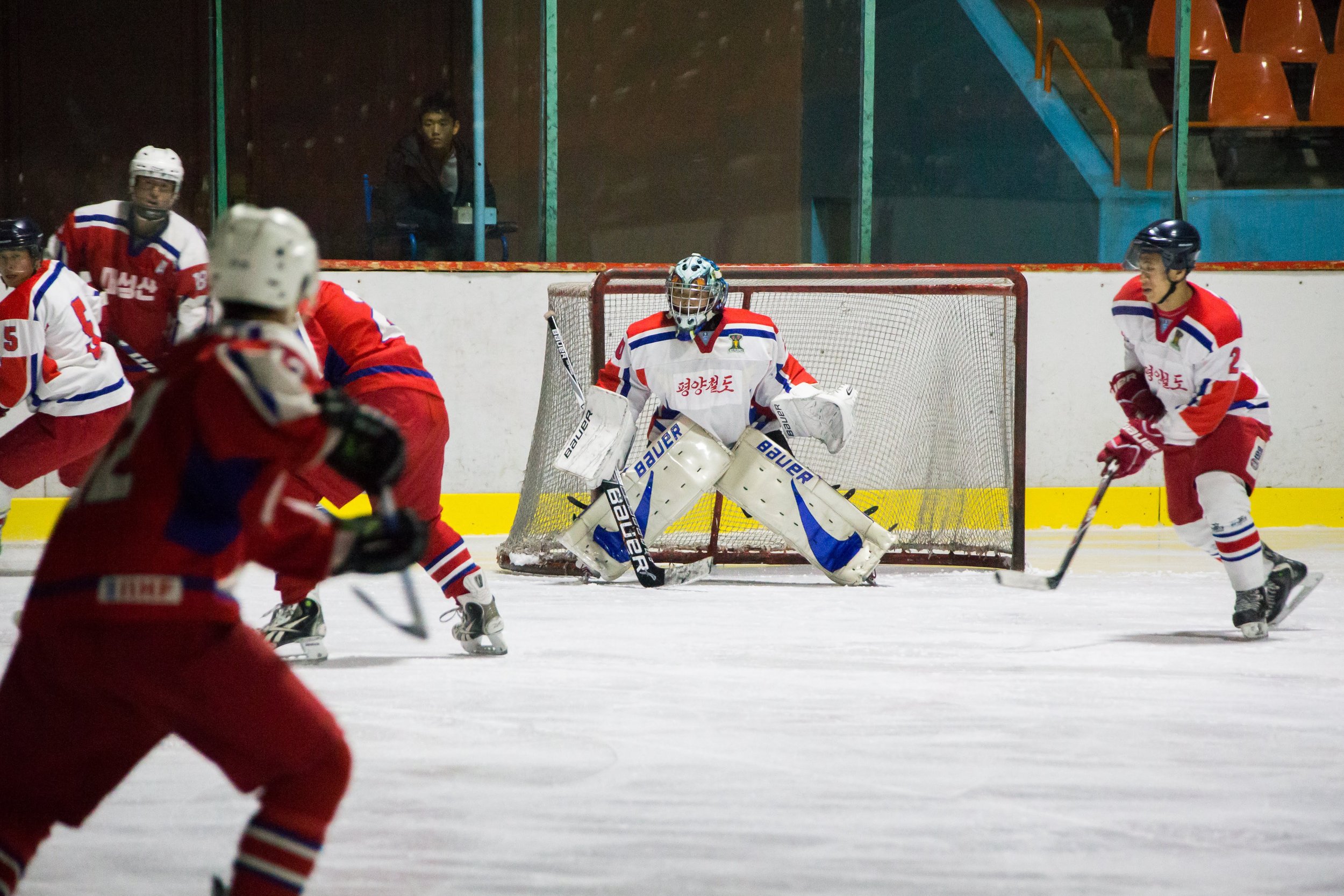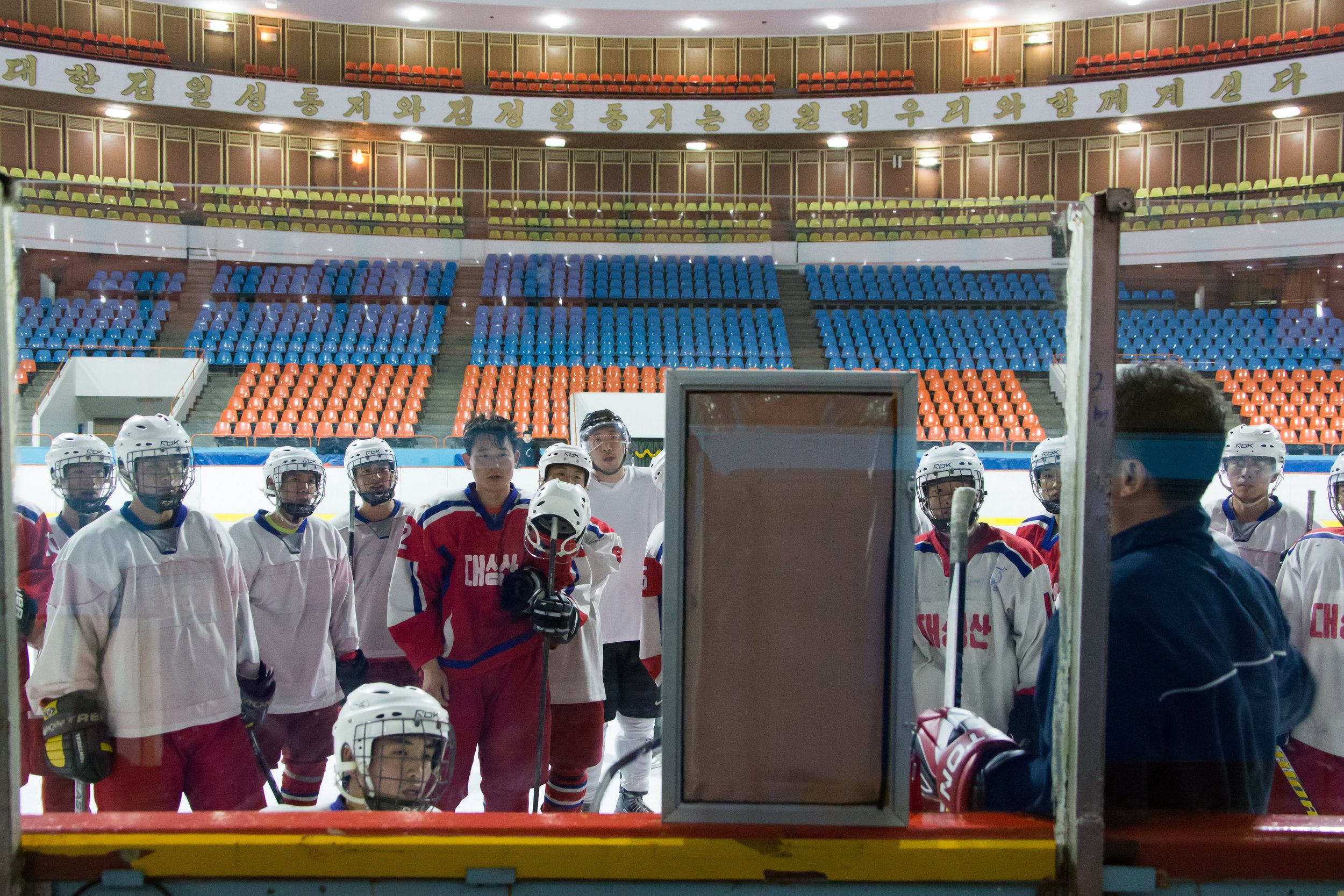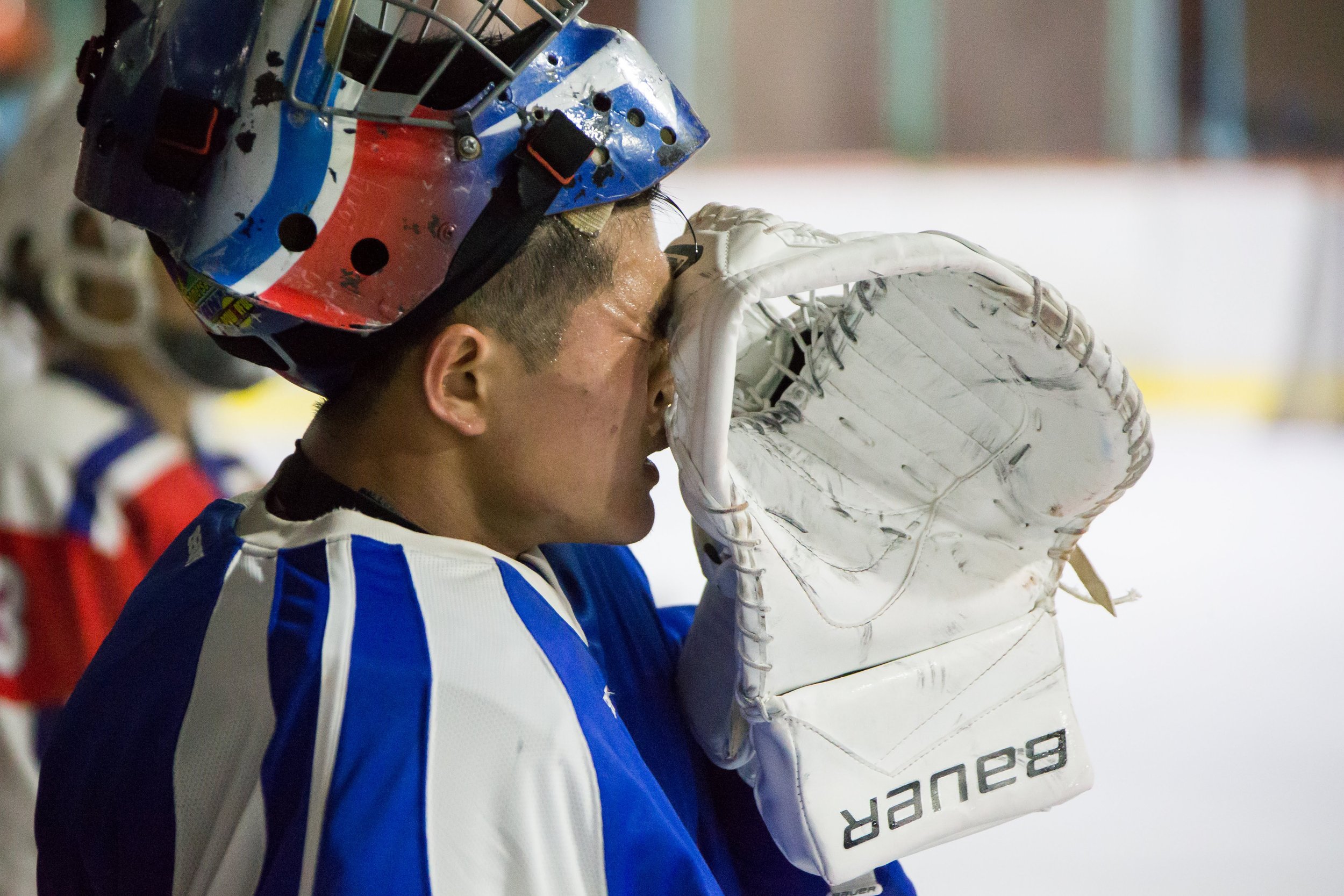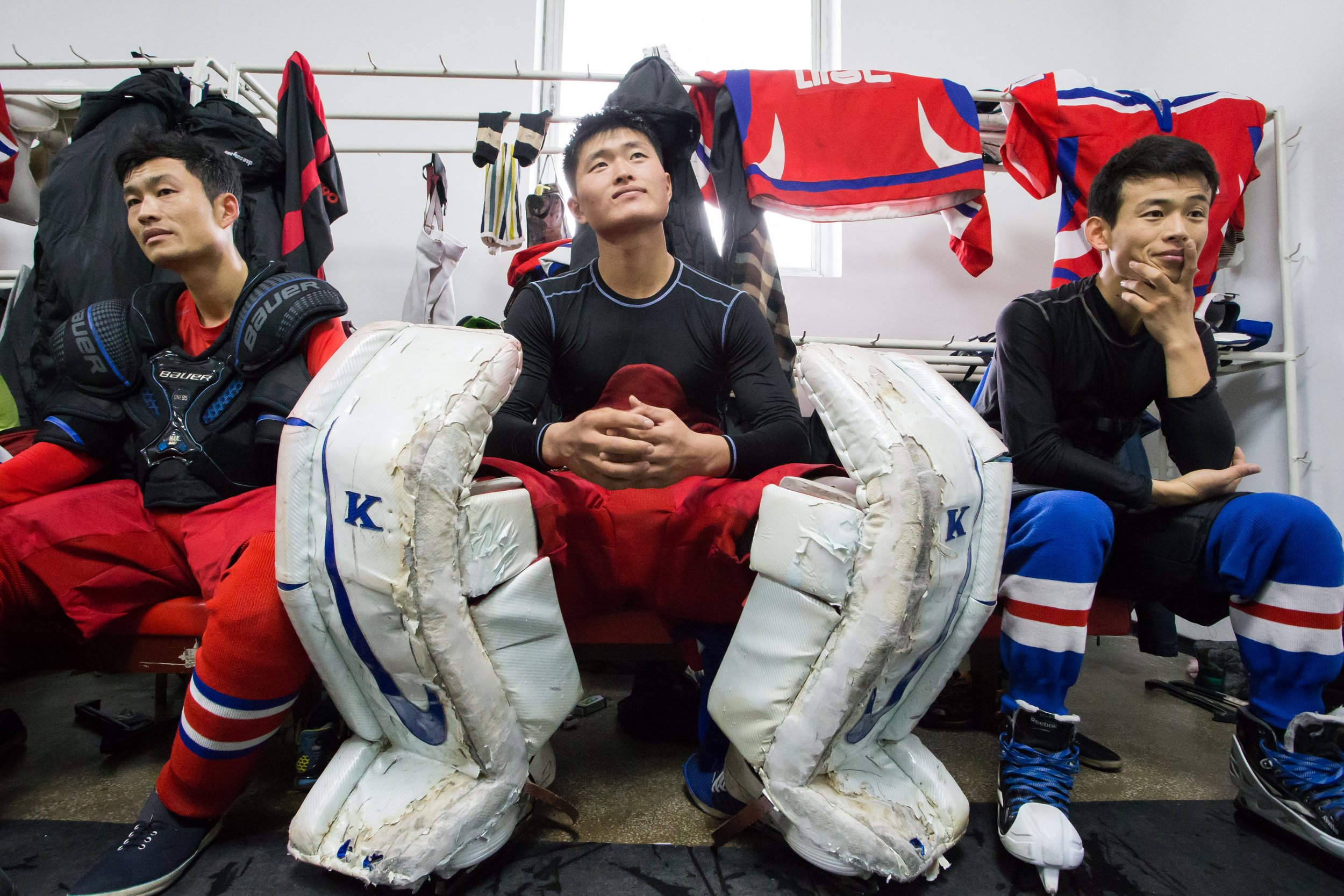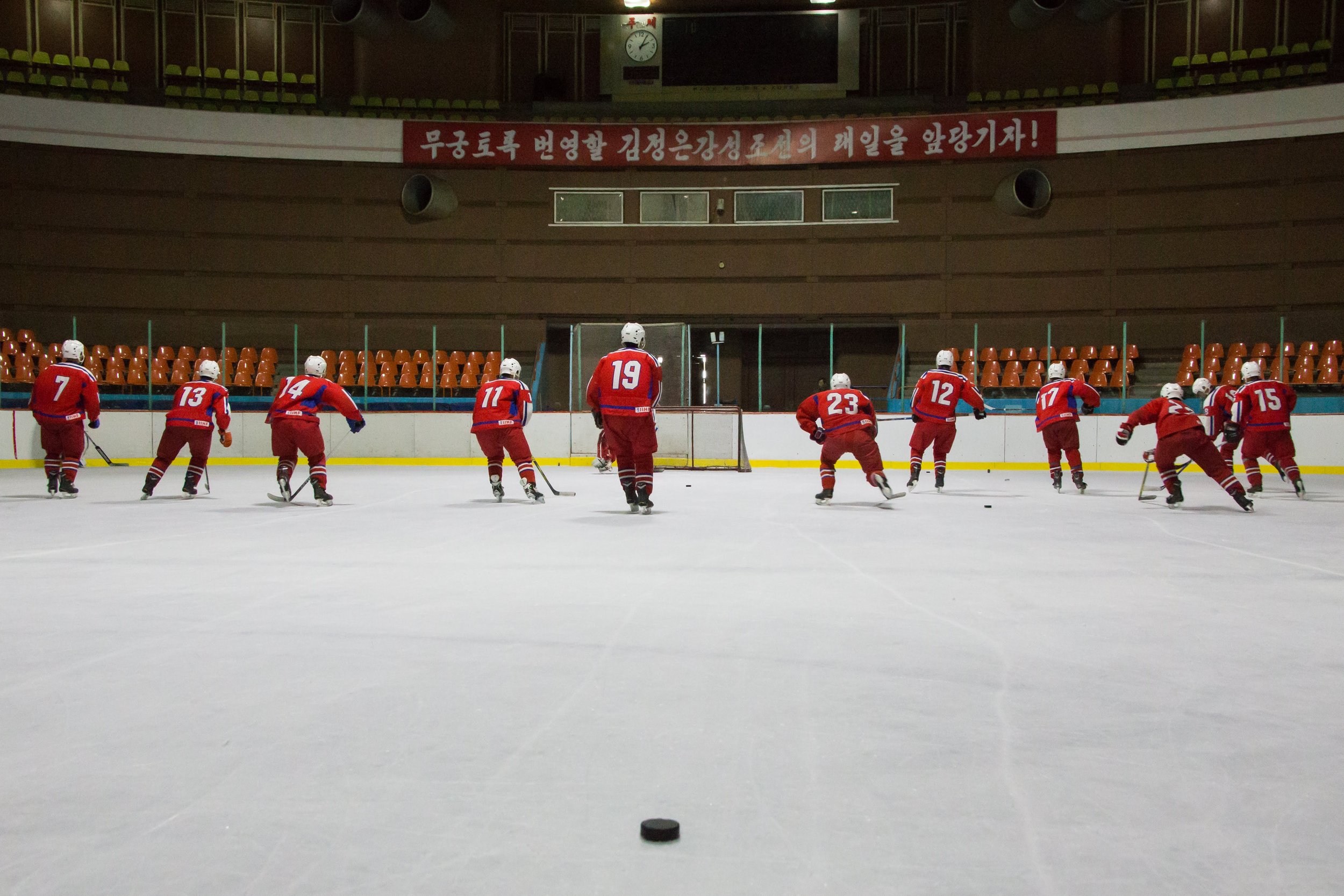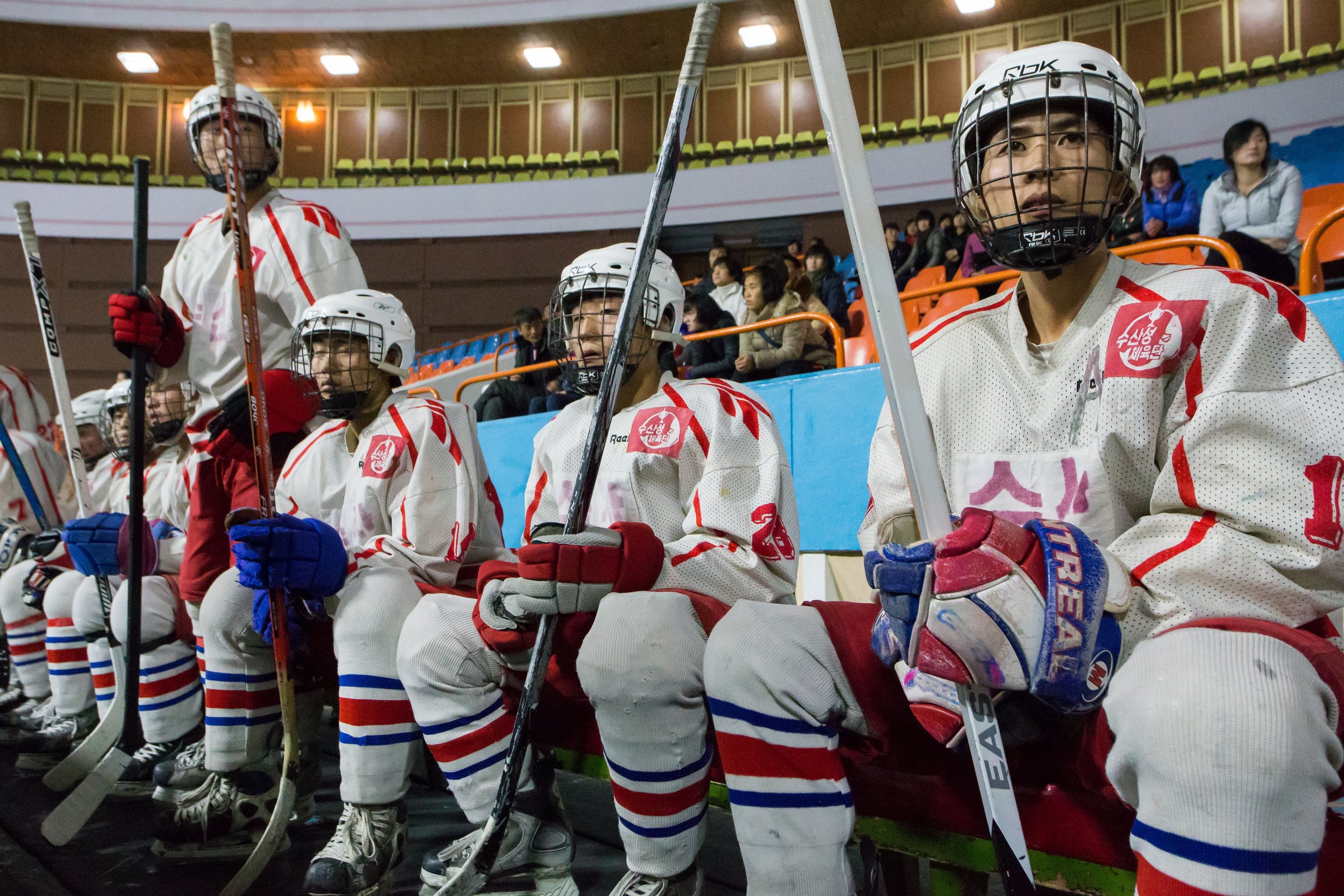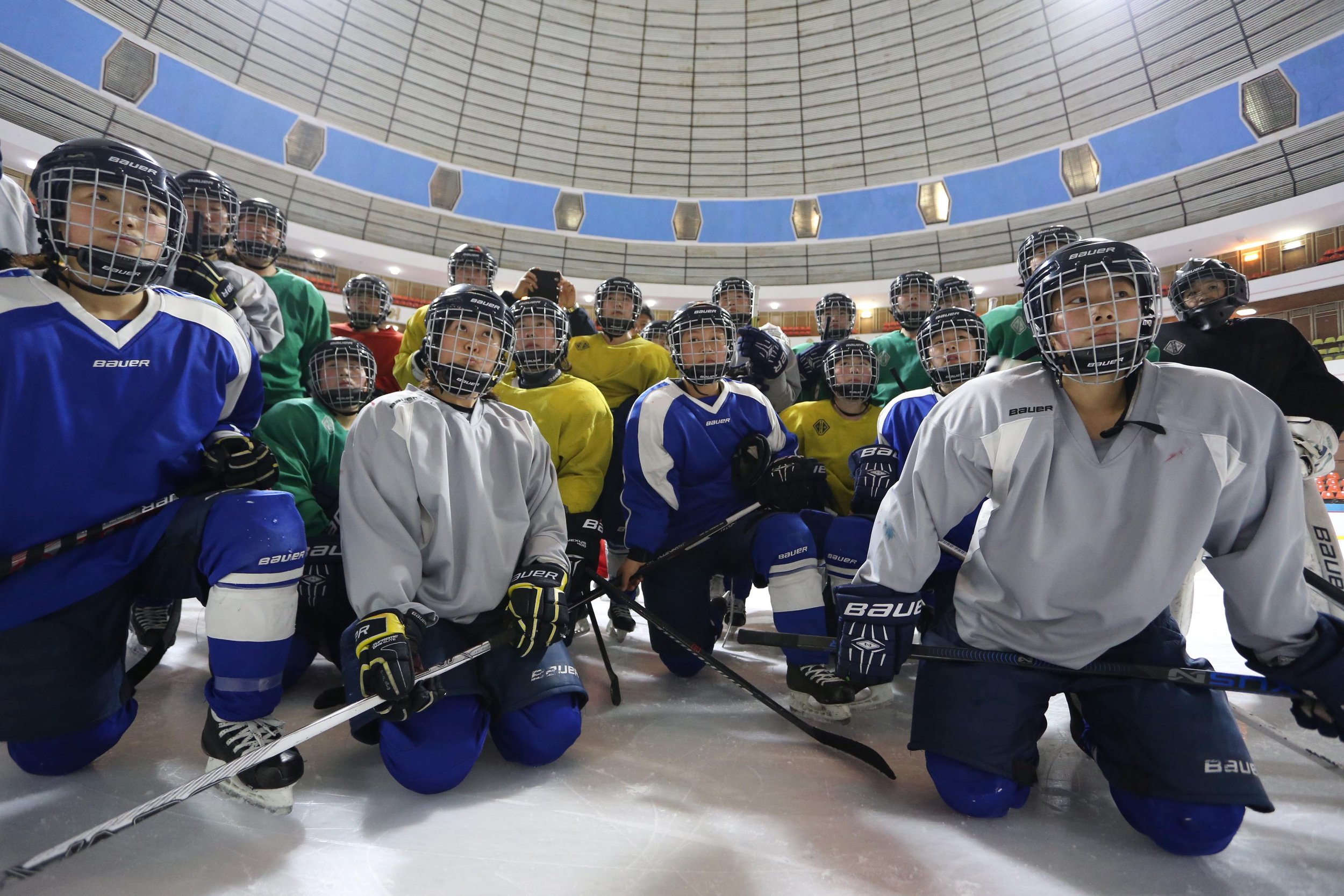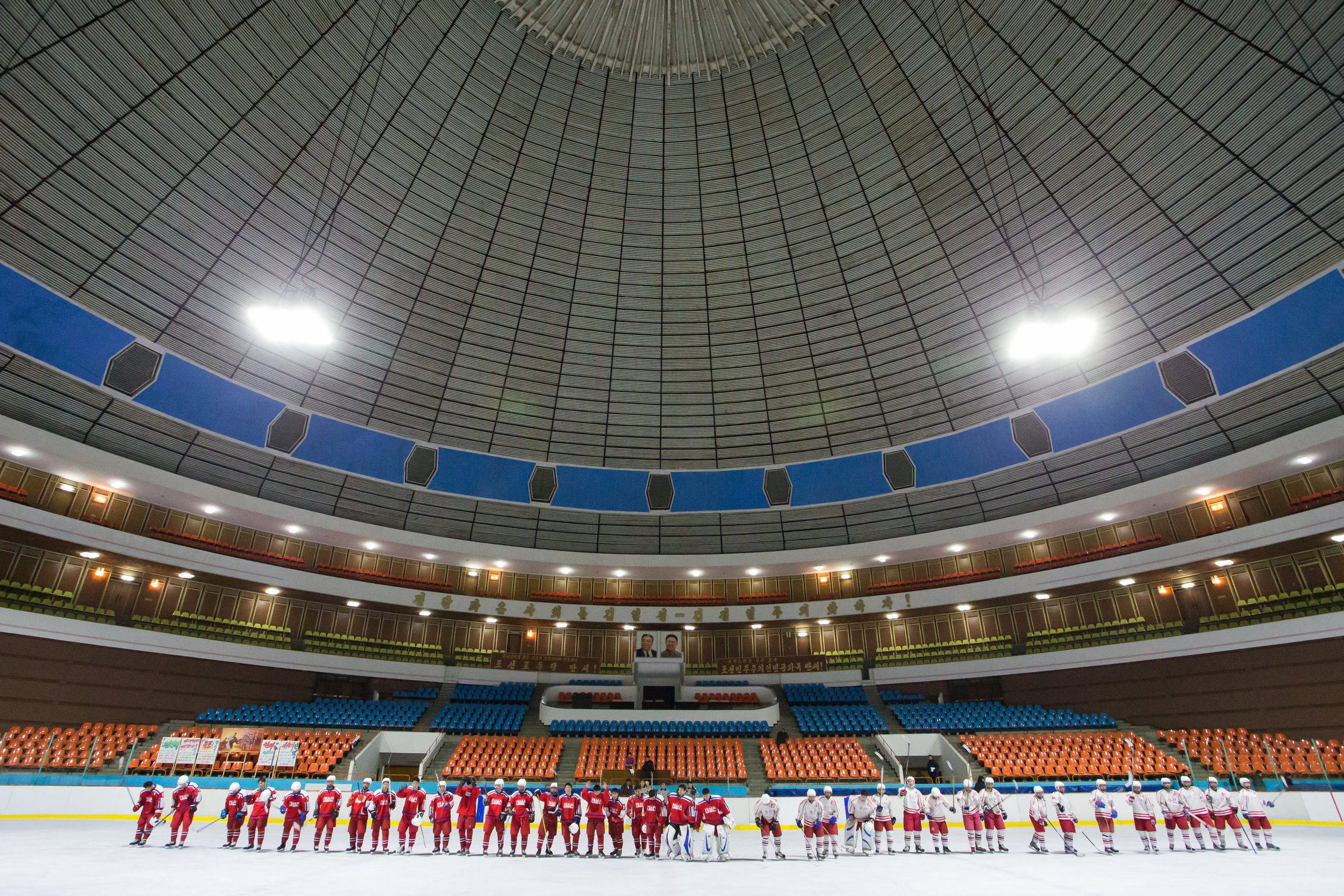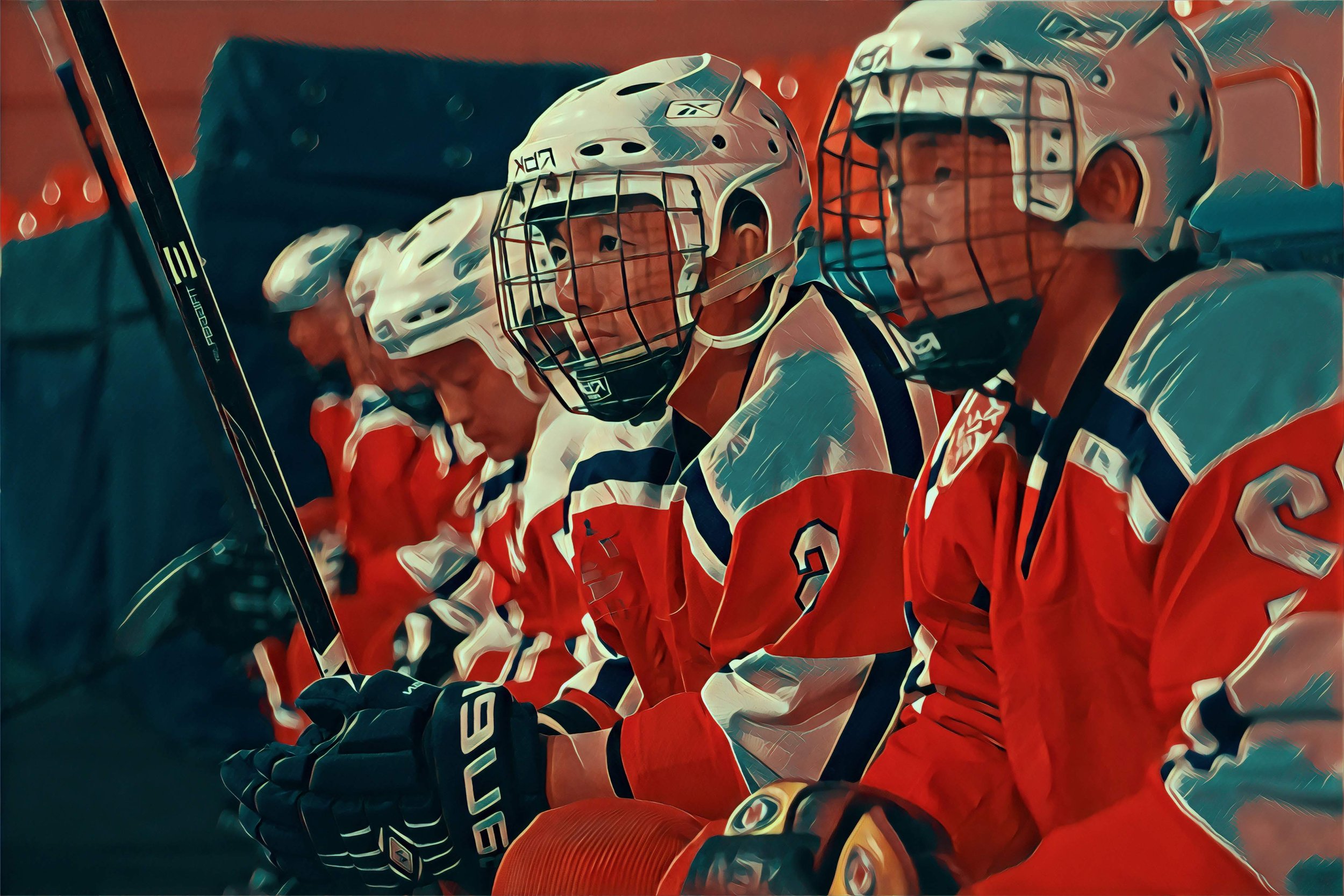
THE PYONGYANG CUP
North Korea’s First Mixed-Team Hockey Tournament / Social Experiment in Social Trust Building
ABOUT THE TOURNAMENT
You might be surprised to learn that North Korea has a hockey league, and even more surprised that we want to send you to play with them. We want to open your eyes to a different side of one of the most politically isolated nations in the world by connecting directly with people— in this case hockey players from the countryside towns of Hyesan, Manpo, Kanggye and more.
We hope through the mutual love of hockey and teamwork, we can bridge the gap between our worlds and foster understanding and camaraderie between citizens. Not only will you play hockey with North Koreans, but you’ll be on the same team as them working together towards a common goal, a first in North Korea.
More than a hockey tournament, the Pyongyang Cup is an experiment in changing cultural perceptions both in the Western world and in North Korea. By proudly displaying that we can work together to the public, we hope that we can change how we see one another.
We invite you to join us and play in the first international mixed team hockey tournament ever held in North Korea.

After a long hiatus due to the COVID-19 Pandemic and the DPRK’s continued border closures, the Pyongyang Cup is scheduled to take place from February 13-24, 2025 after receiving approval from the DPRK’s Ministry of Sports.
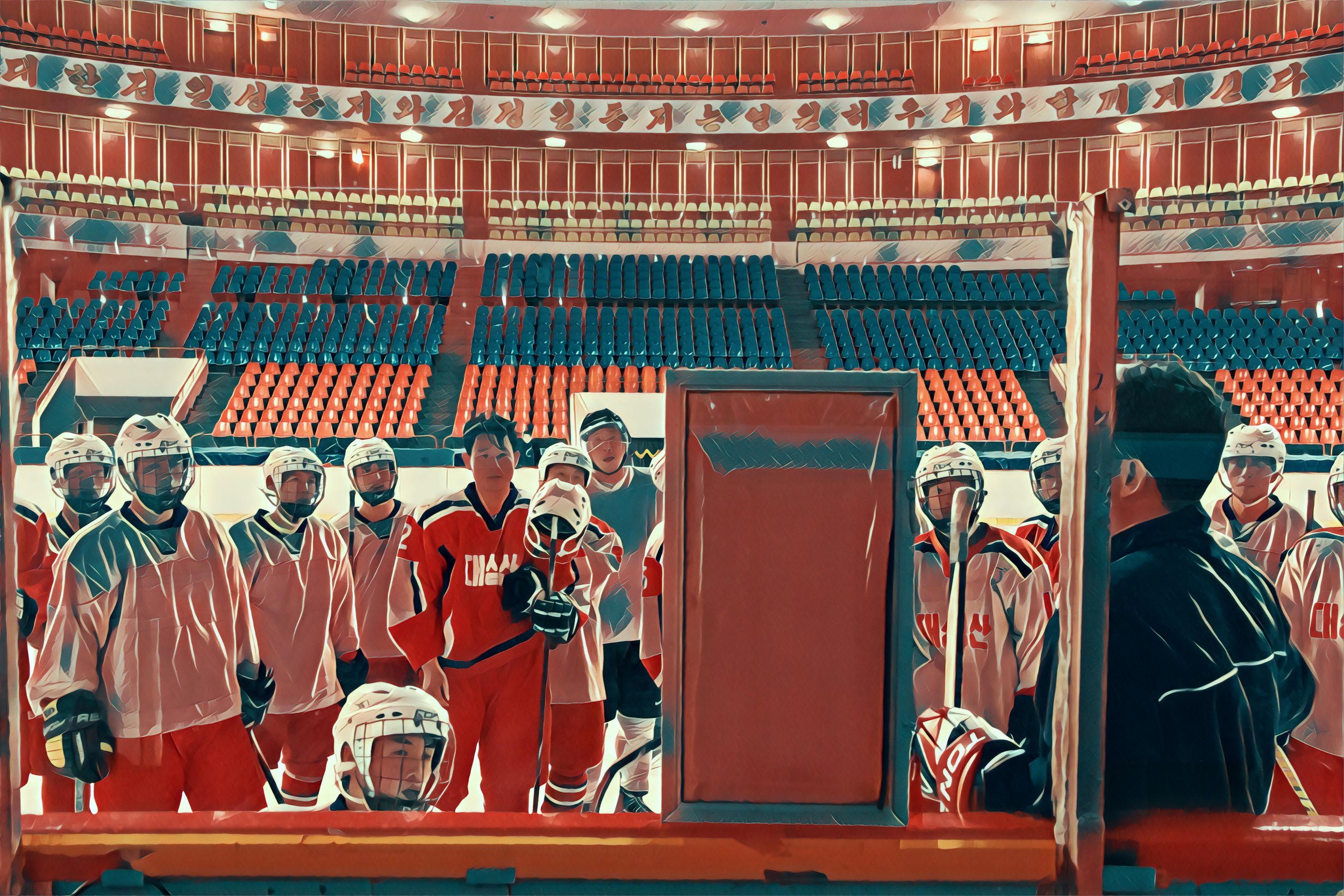
TOURNAMENT DETAILS
Dates: February 13-24, 2025
Participation Fee: $3750 USD
Includes local transportation, 11 nights of accommodation (sharing twin rooms), three meals daily, DPRK visa, international train tickets from China to Pyongyang, team jerseys, guides, coaches, rink fees, tournament fees, and all activities on the itinerary.
Capacity: 28 international and 28 North Korean hockey players; up to 10 non-playing foreign spectators are welcome.
Skill Expectations: Men’s or women’s rec league and above.
Arrival and Departure Point: Beijing, China.
Restrictions: This program is not open to American or ROK passport holders. Dual citizens with a passport from other than these countries may register.
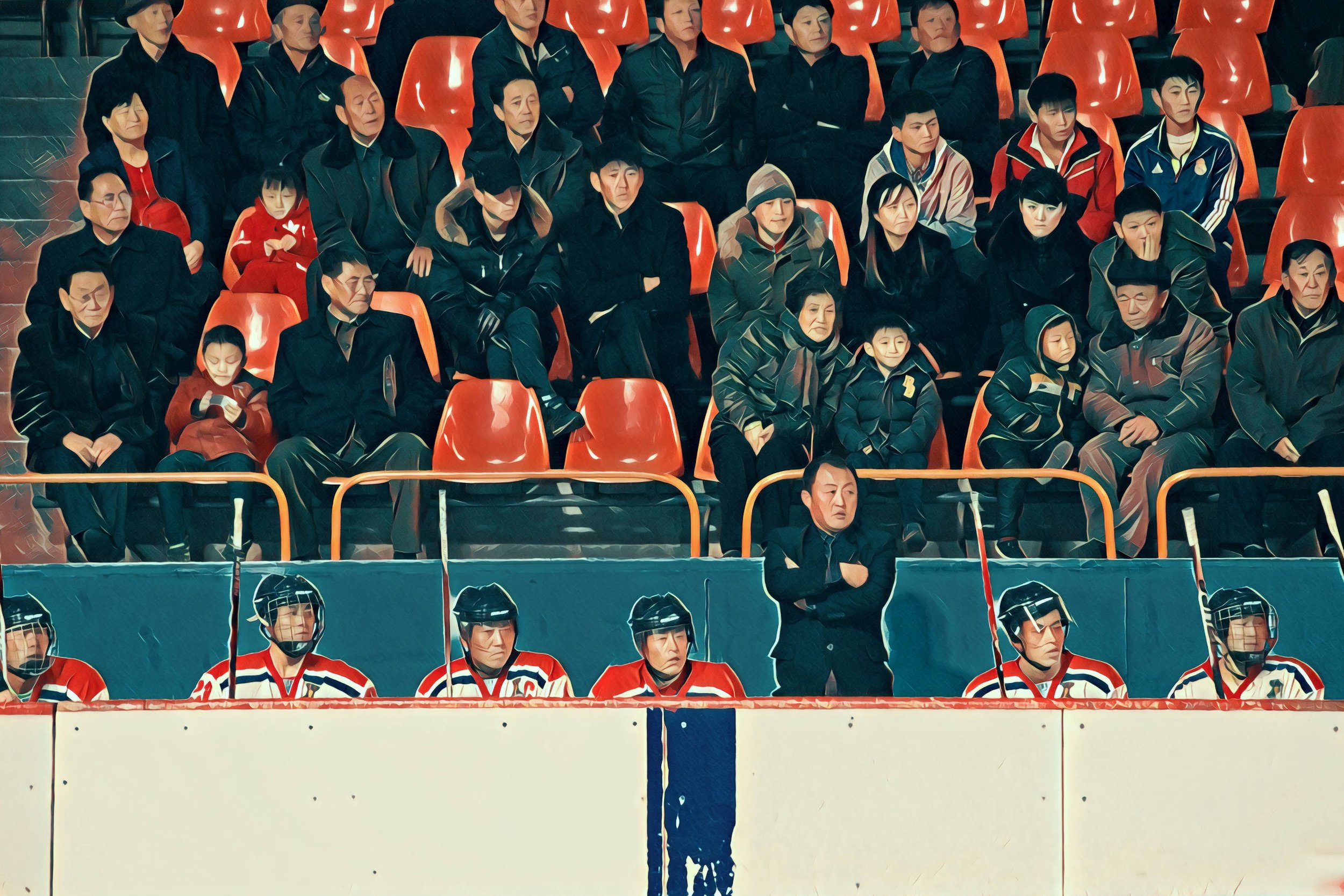
The Pyongyang Cup is hosted as a 4-team round robin tournament with 6 total games. Three of the teams are comprised near equal North Korean and foreign players, while the forth team is a DPRK club team. The 2025 tournament is largely hosted in Samjiyon city in the central-north off the country.
Players are drafted during tryouts conducted by our Western and North Korean coaches, where players are evaluated based on a series of drills and scrimmages. We aim to create teams of balanced skill level.
Each mixed team has a North Korean coach, a Canadian team manager, as well as a helper/translator. Each team forms their own distinct culture— their own team name, their own cheers, handshakes, and hopefully local fan base (all games are open to the public).
Social activities are held both on and off the ice; foreign players will also participate in other cultural exchanges and events around Pyongyang, Samjiyon, and Hyesan throughout the tournament.
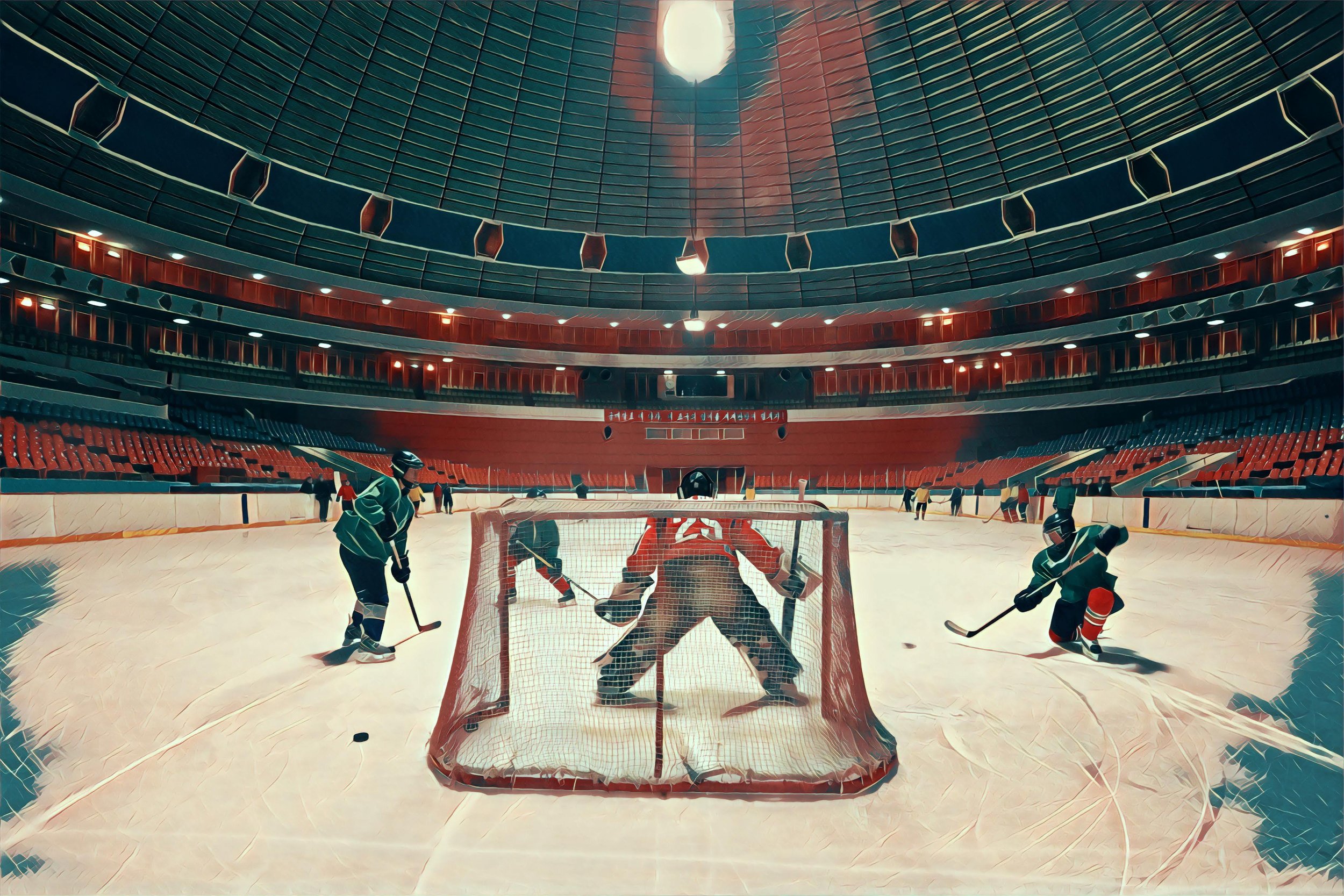
TOURNAMENT SCHEDULE
DAY 1. DANDONG or BEIJING / PYONGYANG
Clear Chinese and North Korean immigration and customs
Take the international train to Pyongyang (from Dandong) or
Fly from Beijing to Pyongyang (13:05 flight on Air Koryo)
Arrival in Pyongyang
Welcome dinner with North Korean staff
DAY 2. PYONGYANG / SAMJIYON
Pyongyang city walk and Mansudae Grand Monuments visit
Commercial flight to Samjiyon (1.5 hrs)
Watch a local hockey game between local DPRK club teams
DAY 3. SAMJIYON
Secret Camps visit
Watch a local hockey finals for the Gwangmyongsong tournament between local DPRK club teams
Samjiyon School Children’s Palace visit
Samjiyon walking tour
DAY 4. SAMJIYON / HYESAN
Drive to Hyesan City
2.16 Holiday celebrations in Hyesan
Hyesan Music University student performance
Language exchange activity
Pochonbo Monument
Hyesan Taekwondo School group training
Mass Dance
DAY 5. HYESAN / SAMJIYON
Return to Samjiyon
Player meetings and team formation
Introductions
First team on-ice and off-ice practices
Samjiyon Ice Sculpture Festival
DAY 6. SAMJIYON
On-ice and off-ice team practices
Games 1 and 2 of the Pyongyang Cup Tournament
Traditional Korean bathhouse visit
Team dinners
DAY 7. SAMJIYON
On-ice and off-ice team practices
Games 3 and 4 of the Pyongyang Cup Tournament
Korean cooking school
Ice fishing with Korean teammates
DAY 8. SAMJIYON
Hike to the summit of Mount Paektu, Korea’s highest and holiest mountain
Picnic lunches with your North Korean teammates at Lake Chon, Mount Paektu
On-ice and off-ice team practices
Games 5 and 6 of the Pyongyang Cup Tournament
Cup Presentation and Awards Ceremony
Concluding dinner with players and coaches
DAY 9. SAMJIYON / PYONGYANG
Downhill skiing in Samjiyon
Domestic flight to Pyongyang (1.5 hrs)
Juche Tower visit
Duck BBQ dinner in Pyongyang
DAY 10. PYONGYANG
Pyongyang city walk
Public ice skating
Exchange and basketball game with students at the Pyongyang University of Foreign Studies
Party Foundation Monument and Kim Il Sung Square
Pyongyang Metro
Program concluding dinner in Pyongyang
DAY 11. PYONGYANG / BEIJING or DANDONG
Take the international train from Pyongyang to Dandong, China
Clear DPRK and Chinese customs and immigration
Continue to Shenyang city by bullet train from Dandong
Reflection session and discussion
Dinner in Shenyang
DAY 12. DEPART FROM SHENYANG, CHINA
Departures throughout the day, no scheduled activities
FAQ
-
The Pyongyang Cup is an international hockey tournament and social experiment aimed at both trust building and fostering dialogue, understanding, and sportsmanship between foreign and North Korean athletes. It takes place in North Korea, and invites rec league hockey players from around the world to participate.
-
North Korea is often seen solely through the lens of geopolitics, which overshadows its culture and the potential for grassroots human interaction. Sport has historically been a neutral ground for bringing people together. The Pyongyang Cup serves as an opportunity to break through barriers of propaganda by creating a shared experience that promotes trust and camaraderie. After over fifteen years of work in North Korea, including various educational and cultural exchanges, we saw sport as a natural next step for fostering dialogue.
-
The Pyongyang Cup is not a political event. It is focused on sportsmanship and fostering human connection through hockey. While we acknowledge the unique political context of North Korea, and the fact that it is incredibly difficult if not impossible to remove politics from North Korean society (even physically, from the music to the slogans, monuments and portraits everywhere in the country) our goal is to use sport as a universal language to break down stereotypes and offer athletes the chance to engage with the local community. Participants are not endorsing any political agenda; they are ambassadors of goodwill through sport. The idea behind mixing the teams is more about breaking away from the politics than it is endorsing any agenda.
-
The Pyongyang Cup is open to curious players from around the world. We aim to attract hockey players from various countries, especially those who have an interest in international tournaments and sports diplomacy. While there are eligibility requirements for participants, we emphasize inclusivity, focusing on teams and players who understand the importance of the event's mission. Due to geopolitical restrictions, we are not able to accept US, South Korean, Japanese or Israeli passports for this program.
-
We take the safety of all participants seriously. Travel logistics are carefully planned, and we work closely with local partners in North Korea to ensure that the event runs smoothly and safely. Participants are briefed on local customs and regulations to ensure a respectful and secure experience. We have over 15 years of work experience in North Korea, and even produced a documentary on the country's hockey players over three years. We specifically staff the program to keep players engaged and safe.
-
No. Our images, faces, or games are not recorded by local media and are not broadcast within the country. While local press may or may not announce the tournament, there is no interviews conducted with foreign players that might be turned into pieces of political propaganda.
-
Yes, organizing an event in North Korea is undoubtedly controversial. However, that’s part of the reason this project is so important. It challenges perceptions and encourages nuanced understanding, while promoting an engagement effort that can best be described as a social experiment in trust building. Through mixed-team hockey, we hope to create opportunities for direct person-to-person interactions that transcend media narratives and geopolitics. The program has been carefully designed to minimize tourism and spectacle, while maximizing interaction both on and off the ice. After 15 years of work experience in North Korea, we have designed this experience with ethics front and centre.
-
The tournament is designed to bring positive attention to the local hockey scene in North Korea. Beyond the games themselves, we plan to engage local communities by organizing workshops, exchanges, and school visits, allowing players to interact with local youth and share their knowledge. By fostering a love for sport, we aim to contribute to long-term local development.
-
This program operates under the permission and control of the DPRK's Ministry of Sport and the Korean Ice Hockey Association, with additional backing from the Taesongsan Winter Sports Club. Participants will find the level of control to be both relaxed and extreme at the same time due to the way these groups operate. When it comes to hockey and off-ice activities with the players, you will find perhaps a surprising amount of freedom; however, when it comes to things that exist beyond the scope of hockey and off-ice activities, you will find a high degree of paranoia and control, for even things as simple as going on a walk alone in town or walking into a random store or restaurant. This is how things generally work in North Korea-- you have wide flexibility only within one aspect of your visit to the country. And this is why this experience is best to be seen as a tile in the mosaic that is North Korea instead of trying to represent North Korea as a whole. We are here to both immerse ourselves in the world of North Korean hockey, as well as engage earnestly and deeply within that select space, but understand that for this experience our efforts do not go much beyond that in a physical sense.
-
There are approximately 1,200 hockey players in North Korea, including youth players, men's and women's club teams, and men's and women's national teams. Most players are selected from school at a relatively young age due to perceived athletic talent and then enrolled at specialized athletic academies in the country. Most hockey players come from towns in the northern part of North Korea, as winter sports and ice skating have historically been more popular there.
-
Hockey entered North Korea just following the Korean war, brought by Soviet advisers. The Korean Ice Hockey Association was founded in 1955, and the DPRK joined the IIHF in 1964, as hockey grew in prominence in the 1960s and 70s. Hockey is not considered the most popular sport in the country today, as that belongs to football (soccer), but is something that most North Koreans know about but few have seen live.
-
We understand the ethical concerns surrounding North Korea and are committed to ensuring that the event is not exploitative or harmful. Our approach is rooted in respect for local culture and the people. We have spent years building relationships with local stakeholders to ensure that this event aligns with our values of mutual understanding and respect, while providing a unique platform for positive engagement through sport. We see this program as a social experiment very carefully designed to engage and educate, but not buy into the propaganda or feed specific narratives of the country. Likewise, we are careful with the program's finances. We also understand most of the financial support for this program doesn't go particularly far in terms of reaching government of military coffers. (see next question).
-
In order to answer this important yet complex question, we must go into how the North Korean economy works. In a basic sense, there are few to no centralized funds in the country. All organs belong to the State and conform State ideology; however, these organs are financially independent and are given the right to form economic-facing ventures in order to meet their funding needs. Basically, what this means is by and large the North Korean economy is bottom up, not top down. Government organizations, ministries, political organs, units, etc all start businesses, which in turn start other businesses, and the organizations at the top collect what functions much like a tax on the income of the businesses below them. In this system, the choicest parts of the economy are allocated to the most influential and powerful political and military interests, including mining, rare earth minerals, fish stocks, etc, while the vast majority of organizations are left to fend for themselves in the small business world. With this project, falling under athletic exchange with some tourism (we stay at hotels, use buses, etc after all), the funds are both insignificant and not considered a particularly choice-y sector of the economy (tourism in general makes up less than 0.05% of the annual GDP, sports exchange would be essentially a non existent contribution). Therefore, the funds spent by this project (about 70% of the tuition is spent locally) in North Korea are largely spread out between many small businesses, with some of it getting lodged in middle management at the Ministry of Sport. So while we cannot completely know where the funds end up, it is very unlikely that they reach high or even mid levels of the North Korean government.
-
The long-term goal is to establish the Pyongyang Cup as an annual or semi-annual event that becomes a trusted avenue for international sporting exchanges. We hope that, over time, it will contribute to a broader understanding of North Korea through the lens of shared human experiences, while building lasting relationships between athletes, coaches, and organizers from different countries. Ultimately, we exist as a trust building social experiment that uses sport as a unifying element and an excuse for human to human dialogue away from politics.
-
Local spectators are welcome to attend all of our games. International spectators may only attend if invited as the "+1" of a player in the tournament.
-
By following the steps here.

